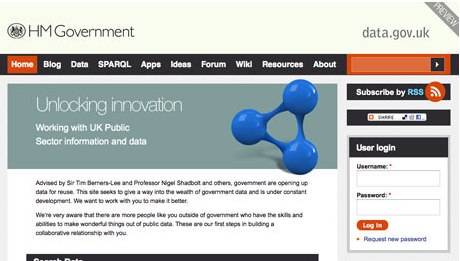A new website dedicated to making non-personal data held by the U.K. government available for software developers has launched today with the help of Sir Tim Berners-Lee, the inventor of the World Wide Web. Data.gov.uk is being slammed with traffic but six months after the U.S. government opened its Data.gov site the U.K. site already has more than three times as much data than the U.S. site offers today.

At launch, Data.gov.uk has nearly 3,000 data sets available for developers to build mashups with. The U.S. site, Data.gov, has less than 1,000 data sets today.

The UK government has been a big supporter of innovation built on top of public data. It sponsored a contest called Show Us a Better Way, giving cash prizes to people who came up with the best ideas for mashups they would like to create if they had access to the right government data. Charles Arthur at the Guardian has good coverage of the U.K.’s open data work (the Guardian has been working hard to open public data as well).
The U.S. government, on the other hand, has been lackluster in its move to open data to facilitate outside innovation. If Twitter is the poster child for building a thriving ecosystem around a streaming set of data, then the Obama administration has earned about 140 characters worth of praise for its fledgling efforts so far. The U.S. government’s efforts to advance agencies’ use of cloud computing may work in conjunction with opening data to the public and thus may improve the state of things, but time will tell.
Congress didn’t even ask U.S. CTO Aneesh Chopra any questions about President Obama’s Open Government initiative during his confirmation hearings. When the U.S. government’s Data.gov site launched, critics pointed out that it was filled with relatively non-controversial data sets; plenty of USGS data but no DOJ or military data, for example. The U.K.’s data site, in contrast, includes 22 military data sets at launch, including one called Suicide and Open Verdict Deaths in the U.K. Regular Armed Forces.
One request that users of both sites still have is for data to be made available in standardized formats. The U.K. site does include a prominent promotion of the Semantic Web, no doubt a tribute to Berners-Lee’s focus on the paradigm as the next step for the future of the web. More standardized, structured data is expected to be the direction that the program tries to get government agencies to move toward in the future.

















